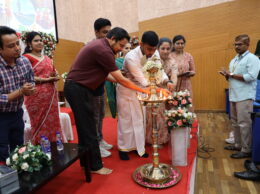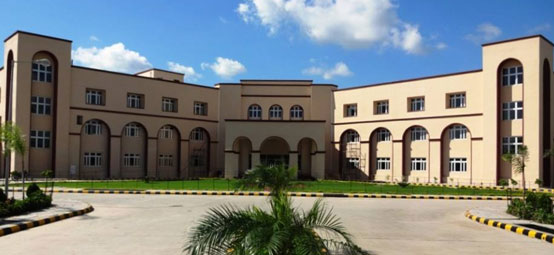Bhubaneswar : Indian Institute of Technology (IIT) Bhubaneswar has recently organised a talk titled ‘Treasure in the Wooden Box: Indian Knowledge Systems (Overview and Relevance)’ by Prof. B. Mahadevan (Ex-Professor IIM Bangalore). Prof. Mahadevan has 30 years of wide-ranging experience in teaching, research, consulting, and academic administration at Indian Institute of Management Bangalore (IIMB) and other reputed institutions such as IIT Delhi and XLRI, Jamshedpur.
The objective of the talk was to formally introduce the notion of India Knowledge System (IKS) and bring to the fore some snippets of IKS. It briefly highlighted several notable contributions made by Indian society in areas such as Mathematics, Astronomy, Town Planning, Metals and Metalworking, Health, and Public Administration, to name a few.
The presentation by Prof. Mahadevan explored the Indian Knowledge System, showcasing its vast historical depth across various fields. He presented examples ranging from ancient mathematics and astronomy (including Diophantine equations and number systems) to architectural marvels (like the Jaisalmer Fort and Konark Sun Temple) and metallurgical achievements (such as Wootz steel). His talk also highlighted IKS’s contributions to irrigation, water management, and the construction of assembly halls. He also discussed the decline of IKS due to historical events and colonial policies, emphasizing the need for its preservation and revival.
Prof. Mahadevan said: “India is a nation with a long civilisational history with recorded history, cultural artefacts, and evidence pointing to more than five millennia of existence. Despite a continuous onslaught of foreign invasions for more than a millennium, the knowledge practices developed by Indians had remained almost intact and were passed on “orally” down the generations. These can be collectively referred to as the Indian Knowledge System (IKS). Despite having a rich repository of knowledge, these ideas have been ignored and sidelined consciously in the modern-day educational system in India. Arguably, this is because the educational policy under British rule chose to de-emphasise the Indigenous knowledge system and instead crafted an alternative based on Western knowledge about 200 years ago. This has created a discontinuity in the Indian Knowledge System.”
Prof. Shreepad Karmalkar, Director, Shri Bamadev Acharya, Registrar, faculty members, staff and students of the Institute attended the talk and interacted with the speaker. Dr. Viajyakrishna Kari, Professor-in-Charge (Seminar) coordinated the programme.









